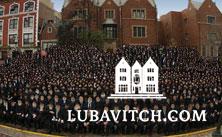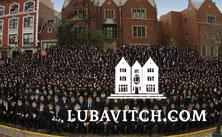
They are a team. Husband and wife. Shliach and shlucha. They are the emissaries of the Rebbe, the representatives of Lubavitch, the messengers of Chabad.
They are the shluchim.
Within the Lubavitch community, the title shliach evokes respect, perhaps even a tinge of envy. They are the chosen few, the elite. Children aspire to be shluchim, dreaming of manning a Chabad House in far-off exotic lands where strange languages are spoken. The product of childish minds, it is an idealized dream, free of the difficulties and traumas that beset the shliach in real life.
There are no trumpet sounded when they arrive in their new home city; no red carpets unrolled in their honor. They have few friends, no relatives, no familiar culture, atmosphere or environment. Many commodities, such as kosher meat, dairy products and other basics, may have to be flown in, but here are certain staples, vitally essential to their mission, which they bring with them by the truckload: Friendliness, affection for all Jews, compassion, tolerance, self-sacrifice, utter devotion and selfless dedication.
Armed with these, they immediately begin their work of outreach-explaining, shedding light, dispelling myths, countering stereotypes. “what does it mean to be a Jew?” “Rabbi, how can I observe the Shabbat-when my store has its best sales on Saturday?” “How are mitzvot relevant today, in this community?” The shliach of Chabad does not insist; he suggests. He does not criticize; he encourages. He does not “preach down” at people; he acts as a genuine equal, a friend. And the revolution begins. It takes place without anyone realizing it. A few years fly by, and, “out of nowhere,” it is a familiar and accepted sight to see families with sukot, observing Shabbat, kosher, etc. …





